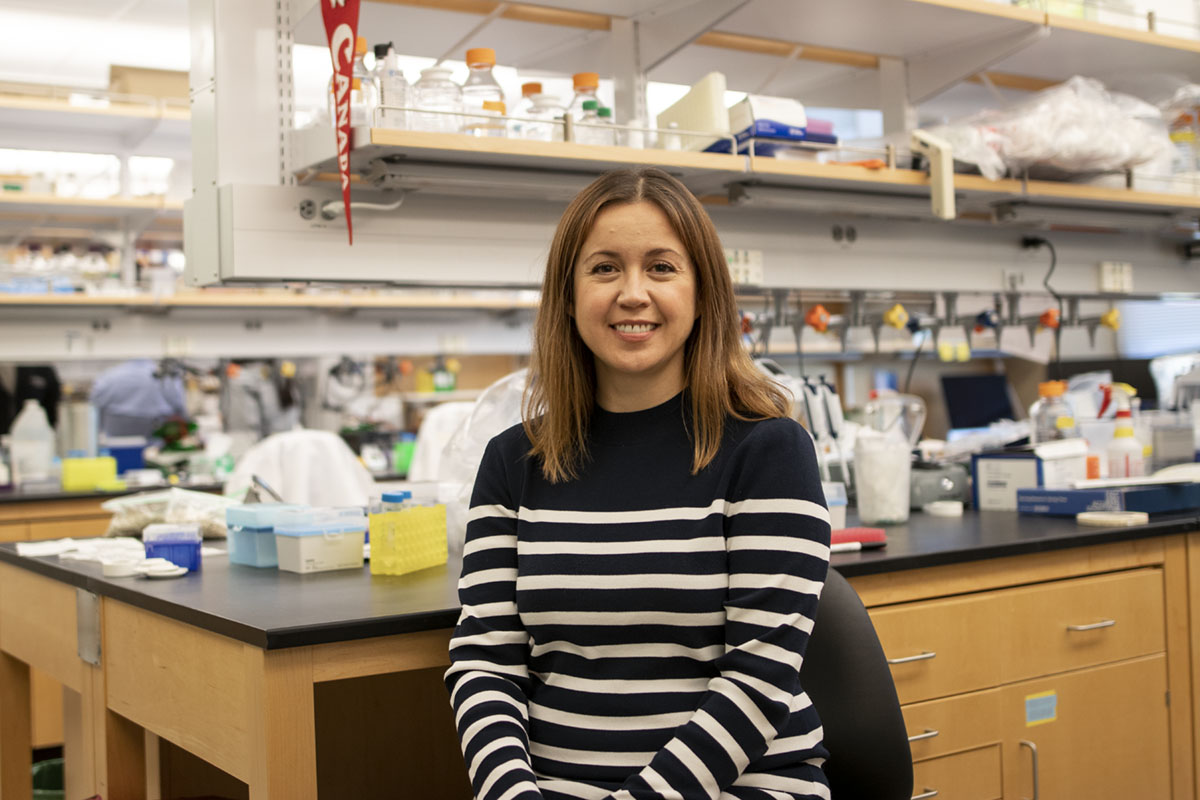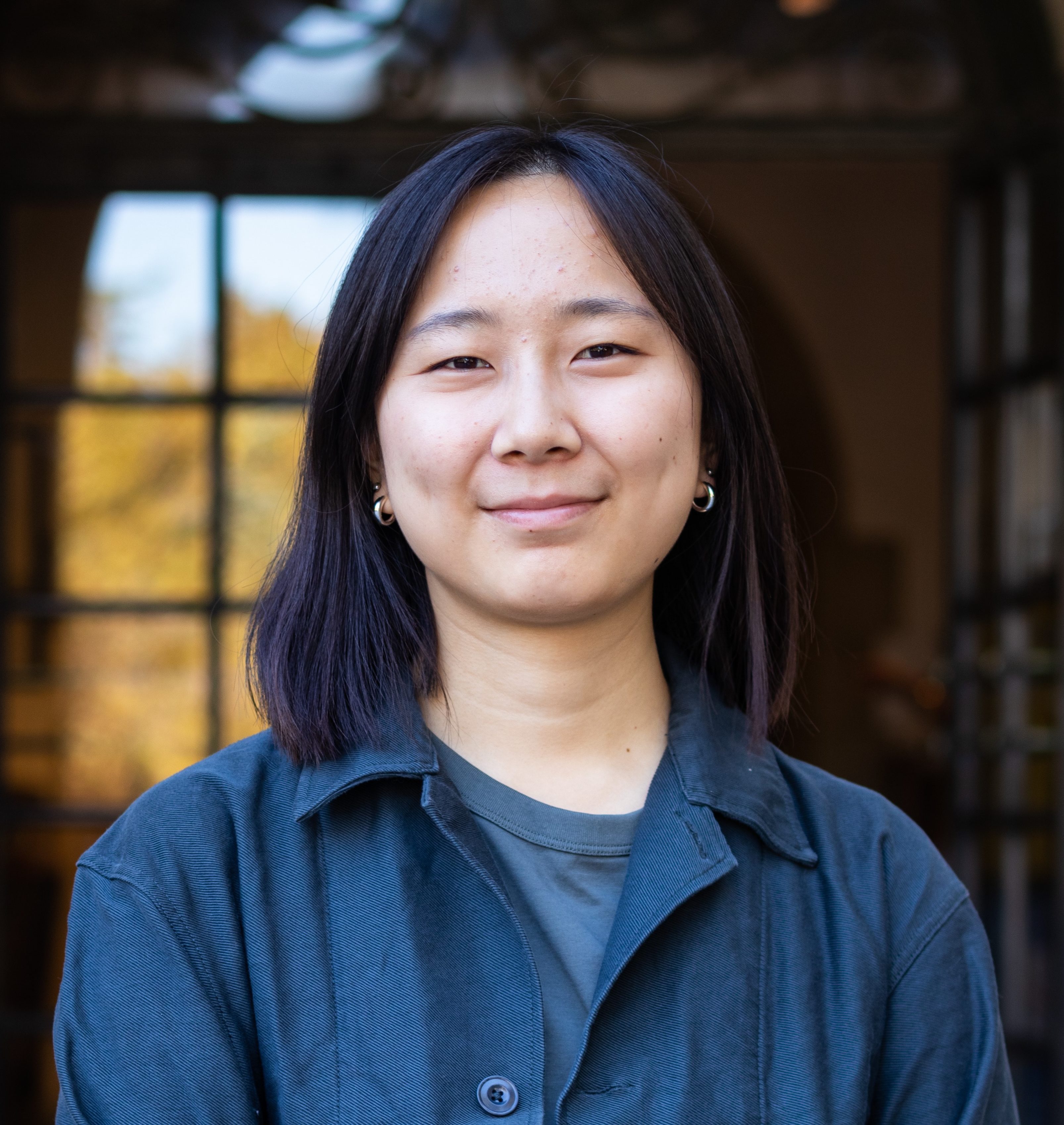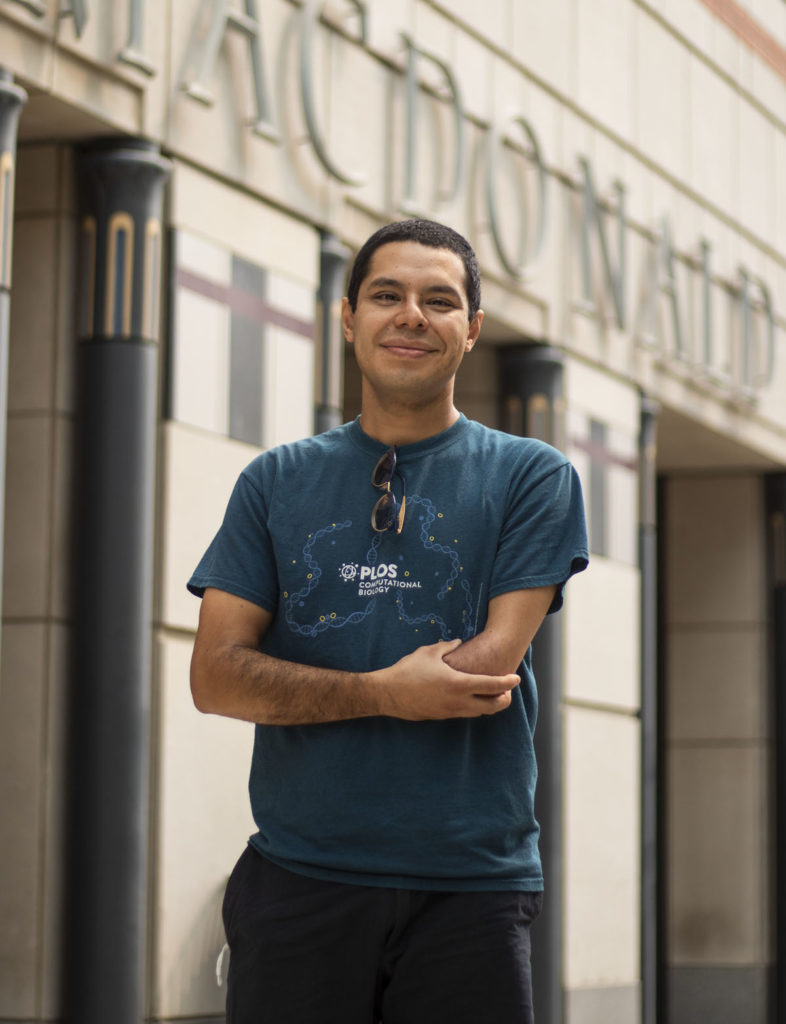Latino scientific researchers reflect on achievements, importance of mentorship

Latina and Latino researchers in the sciences, such as assistant professor Stephanie Correa, reflect on their accomplishments and the importance of mentorship in shaping their careers. (Esther Li/Daily Bruin staff)

By Victoria Ke Li
Oct. 7, 2021 7:30 a.m.
Editor’s note: Daily Bruin used Latino, Latina, Latinx and Hispanic in this article according to sources’ preferences.
Stephanie Correa didn’t know she wanted to be a researcher at first.
“I thought that if you liked biology … the only thing you could do was be a medical doctor,” she said.
Correa is now an assistant professor of integrative biology and physiology and founded a lab that studies the effect of sex and hormones on how the brain balances energy in the body.
Her team’s research is particularly focused on the differences in the brain circuits of males and females and how the hormone estrogen influences those circuits, she said.
Correa said she loved math and science growing up and became especially interested in biology in high school.
As the daughter of immigrants from Colombia and Ecuador, she was also the first of her family to attend college, she added.
“That was interesting because I have had to navigate academia without really knowing how it works,” she said.
She turned to one of her professors who accepted Correa into her lab and nurtured her interest in running experiments and generating new data, she said, as well as guided her through the process of applying to doctoral programs.
Other Latino scientific researchers also reflected on their accomplishments and what brought them to where they are now.
Harold Pimentel, an assistant professor in computational medicine and human genetics who identifies as Latino, runs a lab focused on using large sets of genetic data to decipher how certain diseases are related to different genes.

The interest in science began early for both faculty members.
As a child, Pimentel said he was always building things with his father. In high school, he made websites for friends in bands and went on to study computer science in college.
“I realized how powerful engineering and computer science could be,” he said. “You can sort of quickly see how writing some software can solve a large-scale problem.”
Pimentel said research was unfamiliar to him until his professor offered a position to him after he took his class. He later interned at the National Institutes of Health, where he found his passion for applying computer science to biology.
“I think that there’s important points in everyone’s life where they can make a decision, and sometimes having that outside force is enough to actually change the trajectory of someone’s life,” Pimentel said. “That’s what I think myself and other faculty at UCLA and faculty everywhere are trying to do.”
Correa said she came to UCLA through a program seeking faculty who are committed to mentoring students from groups traditionally underrepresented in STEM. According to Pew Research, Hispanic individuals make up 8% of the workforce in science, technology, engineering and math, despite being 17% of the workforce across all sectors.
“That really gave me the opportunity to come to UCLA, and it really validated the type of scientist I want to be,” Correa said. “I want to mentor people in my lab and foster their career development because I found it so helpful for me.”
Amanda Misquez, a graduate student in physiological sciences who started working in Correa’s lab last summer as an undergraduate, said Correa’s mentorship helped her realize she could go to graduate school and have a career in academia.
“I’ve realized that things like getting a Ph.D. eventually aren’t out of reach, and so she’s really pushed me to push my own boundaries in terms of what I thought I wanted to do,” Misquez said.
Misquez, who identifies as Latina, transferred to UCLA in 2019 after she said she fell in love with the subject of human physiology at her community college, but she felt as though she was at a disadvantage with no previous lab experience.
Although most people are welcoming, Pimentel said he sometimes finds himself being the only Latino in a room in his field.
About 7% of the total faculty at UCLA in April was Hispanic/Latino(a). That number drops to just more than 5% in STEM disciplines and about 1% in engineering and computer science.
However, Misquez said having a trusted mentor such as Correa has helped her realize her goals and feel like she belonged.
“I feel like I have a space here in academia that I didn’t have before I got here,” she added.
Pimentel said students and young researchers should try to create spaces for other underrepresented students, if they do not yet exist. He added that students should be confident and not be afraid to promote themselves, a sentiment Misquez shares.
Students should try to find professors, teaching assistants or even a friend who has had similar life experiences to lean on for guidance, Misquez said.
“Be brave and step outside your comfort zone and send that email to that professor whose class you took, or try to make a friend in your class because you can really build meaningful relationships,” she added.
Misquez is currently working on her thesis, trying to understand why hot flashes occur in breast cancer patients undergoing treatment and how to help them, she said. She hopes to apply to doctoral programs in the fall and wants to eventually teach at a community college or university such as UCLA, uplifting students like herself.
Correa continues to mentor students in her lab, hoping to demystify STEM for younger generations by teaching them skills beyond the lab bench, such as trying to secure funding for their research projects, she said.
“When my mentors did let me peer behind the curtain, it helped me – it’s helping me now,” Correa said. “I try to do that as much as I can without scaring them.”


